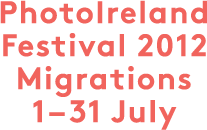The author of an article Culture versus Rights Dualism: a myth or a reality? in openDemocracy web, Yakin Ertür, claims that women’s human rights discourse and movements have become entangled within a culture-versus-rights dualism. The author argues that this is a false dualism which serves both private patriarchy and public patriarchy of neo-liberal globalisation.
“Blaming culture for the disadvantages faced by women, minorities, and other vulnerable groups is an appealing ideology for proponents of contemporary neoliberal globalisation. It blames the havoc wreaked by expansive capitalism and global conflicts on the culture of the other”.
Hence, the cultural authenticity discourse provides a perfect alibi for the traditional patriarchs to evade any responsibility to accommodate women’s rights claims; cultural interpretation of women’s subordination relieves rich countries of the responsibility for dispossessions caused by capitalism, neoliberalism, militarism, occupation and armed conflicts.
The good news is, women have not passively submitted to such encroachments. Individually and collectively they have always negotiated hegemonic value. In confronting the culture of domination they have organised and redefined culture and religion to promote women’s rights.
On the other hand, the international human rights framework which women rely on in holding their respective governments accountable to their international commitments, remains abstract, legalistic and distant to women’s lives.
Furthermore, the hierarchical treatment of rights in the human rights system which privileges civil and political rights over economic, social and cultural rights, reinforces neoliberal globalisation.
These will require strategic engagement with the international human rights framework in order to transform the human rights culture, and to ensure that governments comply with their international commitments. With respect to the former, it is important to strategise beyond CEDAW, which women now use effectively. In this regard, the committees monitoring the Twin Covenants are particularly important in challenging the hierarchy and fragmentation of rights. Women’s rights will remain aspirational if women are not empowered through access to housing, land, credit, income and authority.
You will find full article here:
http://www.opendemocracy.net/5050/yakin-erturk/culture-versus-rights-dualism-myth-or-reality
openDemocracy publishes high quality news analysis, debates and blogs about the world and the way we govern ourselves. openDemocracy is committed to human rights and democracy. They aim to ensure that marginalised views and voices are heard.They believe facilitating argument and understanding across geographical boundaries is vital to preventing injustice. openDemocracy encourages special editorial projects which are part of openDemocracy but are run autonomously with their own funding.







